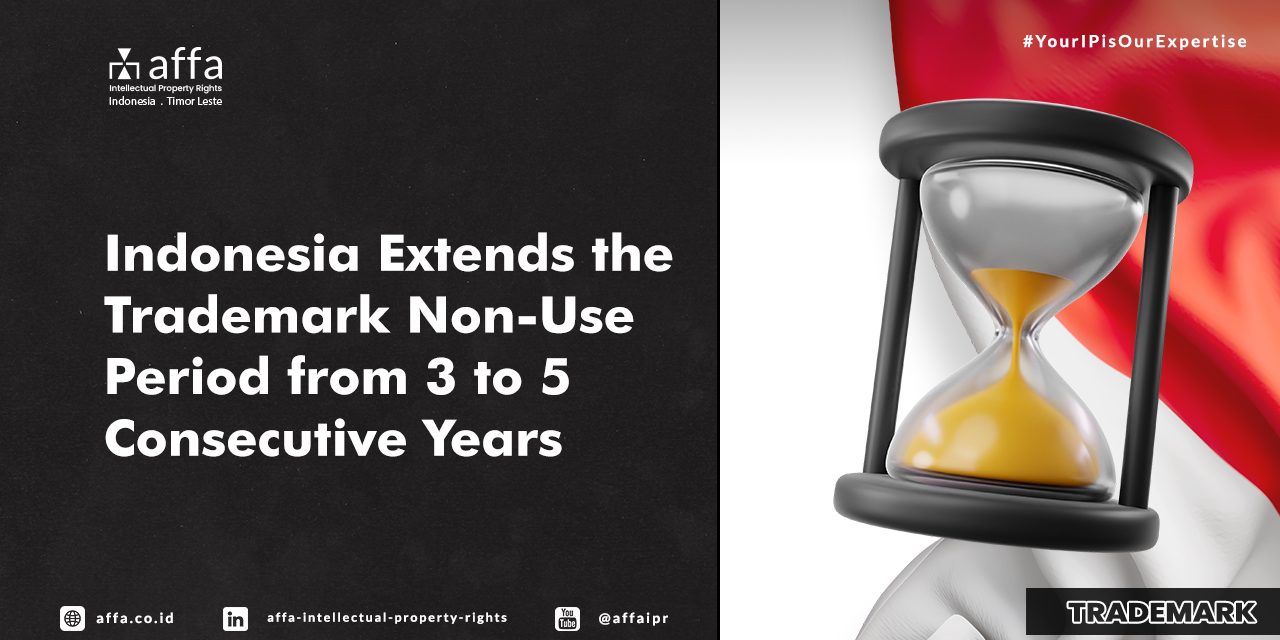On March 31, 2020, Indonesia officially entered the COVID-19 pandemic period with the enactment of Government Regulation Number 21 of 2020 concerning Large-Scale Social Restrictions in the Framework of Accelerating the Handling of Corona Virus Disease 2019 (Covid-I9). After facing various challenges, both for the community, the business world, and the government, the pandemic status in Indonesia was officially lifted on June 21, 2023, and changed to endemic based on the Presidential Decree of the Republic of Indonesia Number 17 of 2023 concerning the Determination of the End of the Corona Virus Disease 2019 (COVID-19) Pandemic Status in Indonesia. In post-pandemic recovery efforts, the government prioritizes economic recovery by paying attention to the needs of Small, and Medium Enterprises (SMEs).
Taking into account the specific conditions of the Indonesian economy, which hugely relies on SMEs that have limited capital and can change at any time and force majeure, through Decision Number 144/PUU-XXI/2023, which was read out at the Constitutional Court (MK) on Tuesday, July 30, 2024, an adjustment was made to the time limit for Trademark non-use period from three to five consecutive years.
This case began when Ricky Thio faced a Cancellation Action for his Trademark based on Article 74 of Law Number 20 of 2016 concerning Trademarks and Geographical Indications (Trademark Law) at the Commercial Court at the Central Jakarta District Court with case number 28/Pdt.Sus HKI/Merek/2023/PN Niaga Jkt.Pst from Zhejiang Dahua Technology Co., Ltd. wanted the cancellation of the Trademark “ ” with registration number IDM000553432 because it was considered not to have been used for three consecutive years. According to Ricky Thio, this situation raises uncertainty in the Trademark protection provided by the government, which has the potential to make SMEs hesitate to register their Trademarks.
” with registration number IDM000553432 because it was considered not to have been used for three consecutive years. According to Ricky Thio, this situation raises uncertainty in the Trademark protection provided by the government, which has the potential to make SMEs hesitate to register their Trademarks.
Timeframe for Filing a New Trademark Cancellation Action
In Decision Number 144/PUU-XXI/2023, the Constitutional Court saw the importance of adjusting the non-use time limit to 5 (five) consecutive years. This is closely related to the time limit for filing a Trademark Invalidation, which is 5 (five) years from the date of Trademark registration, as stated in Article 77 paragraph (1) of the Trademark Law. Although cancellation and invalidation are different things, the regulation is placed in the Chapter “Cancellation and Invalidation of Trademarks” in the Trademark Law.
Thus, without intending to ignore the tendency of countries that adhere to the civil law system, the adjustment of the time limit for non-use of registered Trademarks to 5 (five) years is to provide justice for all registered Trademark owners so that it does not conflict with the Principle of National Treatment and is in line with the provisions contained in Trademark Invalidation. Based on all the legal considerations above, the Applicant’s argument questioning the unconstitutionality of Article 74 paragraph (1) of the Trademark Law, especially the phrase “3 (three) years” is legally justified.
In Decision Number 144/PUU-XXI/2023, the Court partially granted Ricky Thio’s request so that the changes to the article related to the deletion of the Trademark due to the Decision are as follows:
| Before the Constitutional Court Decision | After the Constitutional Court Decision |
| Article 74 paragraph (1) Trademark Law
The cancellation of a registered Mark may also be submitted by a third party who has an interest in the form of a lawsuit to the Commercial Court based on the ground that the Mark has not been used for 3 (three) consecutive years in the trade of goods and/or services from the registration date or the last use. |
Article 74 paragraph (1) Trademark Law
The cancellation of a registered Mark may also be submitted by a third party who has an interest in the form of a lawsuit to the Commercial Court based on the ground that the Mark has not been used for 5 (five) consecutive years in the trade of goods and/or services from the registration date or the last use. |
| Article 74 paragraph (2) Trademark Law
The reasons for an non-used Mark as referred to in paragraph (1) are invalid in the event of: a. import ban; b. temporary prohibition that is related to the permit for the distribution of goods that use the relevant Mark or a decision from an authorized party; or c. other similar prohibitions that are established with Regulation of the Government. |
Article 74 paragraph (2) Trademark Law
The reasons for an non-used Mark as referred to in paragraph (1) are invalid in the event of: a. import ban; b. temporary prohibition that is related to the permit for the distribution of goods that use the relevant Mark or a decision from an authorized party; or c. other similar prohibitions, including in conditions of force majeure that are established with Regulation of the Government. |
Force Majeure can be Used for Exceptions
Force Majeure can be a legitimate reason for Trademark owners who cannot use their registered Trademark or cannot run their business normally. The Constitutional Court (MK), in Decision Number 144/PUU-XXI/2023, emphasized the importance of this exception. Force Majeure generally refers to events or effects that cannot be predicted or controlled, such as natural disasters (floods, hurricanes, earthquakes) or human actions (riots, strikes, war) that prevent someone from fulfilling their obligations. In this decision, pandemic conditions such as COVID-19 are considered Force Majeure, which justifies an exception for Trademark owners who experience difficulties using and producing their Trademarks.
The consequence of Decision Number 144/PUU-XXI/2023 is that the provisions of the Trademark Law must be adjusted to the decision. This is, of course, in line with the explanation of Article 10, paragraph (1) of Law. No. 07 of 2020 Third Amendment to Law Number 24 of 2003 concerning the Constitutional Court in conjunction with the Stipulation of Government Regulation instead of Law Number 1 of 2013 concerning the Second Amendment to Law Number 24 of 2003 concerning the Constitutional Court to Become a Law in conjunction with Law No. 8 of 2011 concerning Amendments to Law Number 24 of 2003 concerning the Constitutional Court in conjunction with Law Number 24 of 2003 concerning the Constitutional Court which states that “The decision of the Constitutional Court is final, namely that the decision of the Constitutional Court immediately obtains permanent legal force since it is pronounced and no legal remedies can be taken. The final nature of the decision of the Constitutional Court in this Law also includes binding legal force (final and binding).”
This decision stipulates that a third party who wishes to file an action for the cancellation of a Trademark may only do so if the Trademark has not been used for 5 (five) consecutive years in the trade of goods and/or services, calculated from the date of registration or last use. For actions for cancellation filed before this decision comes into effect, the old provisions still apply, namely 3 (three) years of non-use. This is because the Constitutional Court Decision is not retroactive but applies in the future (prospective) as regulated in Article 47 of the Constitutional Court Law, which states, “The Constitutional Court Decision has permanent legal force since it was pronounced in a plenary session open to the public.”
You might also want to read:
AFFA Represents Trek Bicycle to Win a Trademark Non-Use Cancellation Action in Indonesia
Should you have further questions regarding Trademark registration and protection in Indonesia and/or abroad, please do not hesitate to contact us via email: [email protected].
Source:







